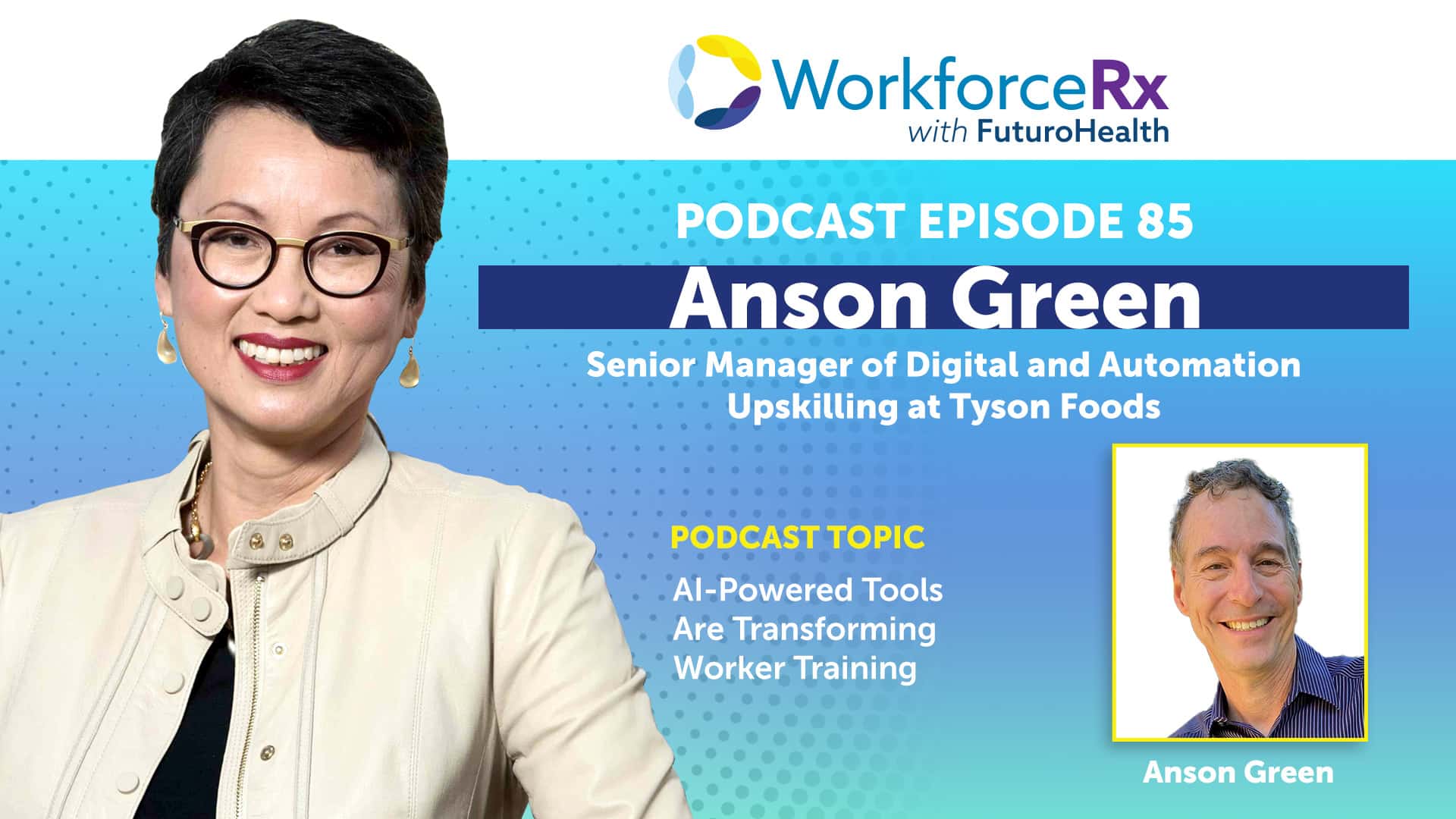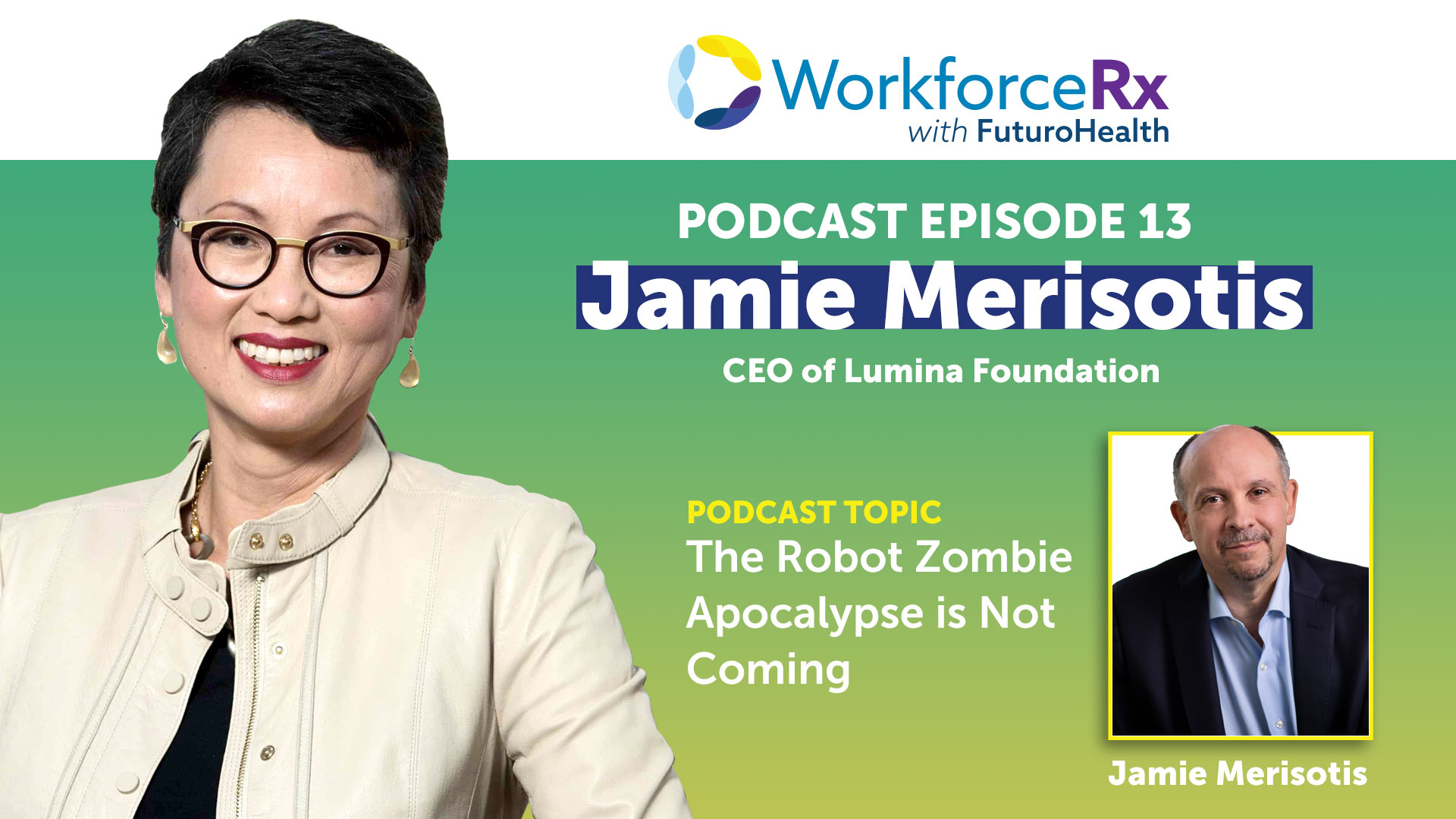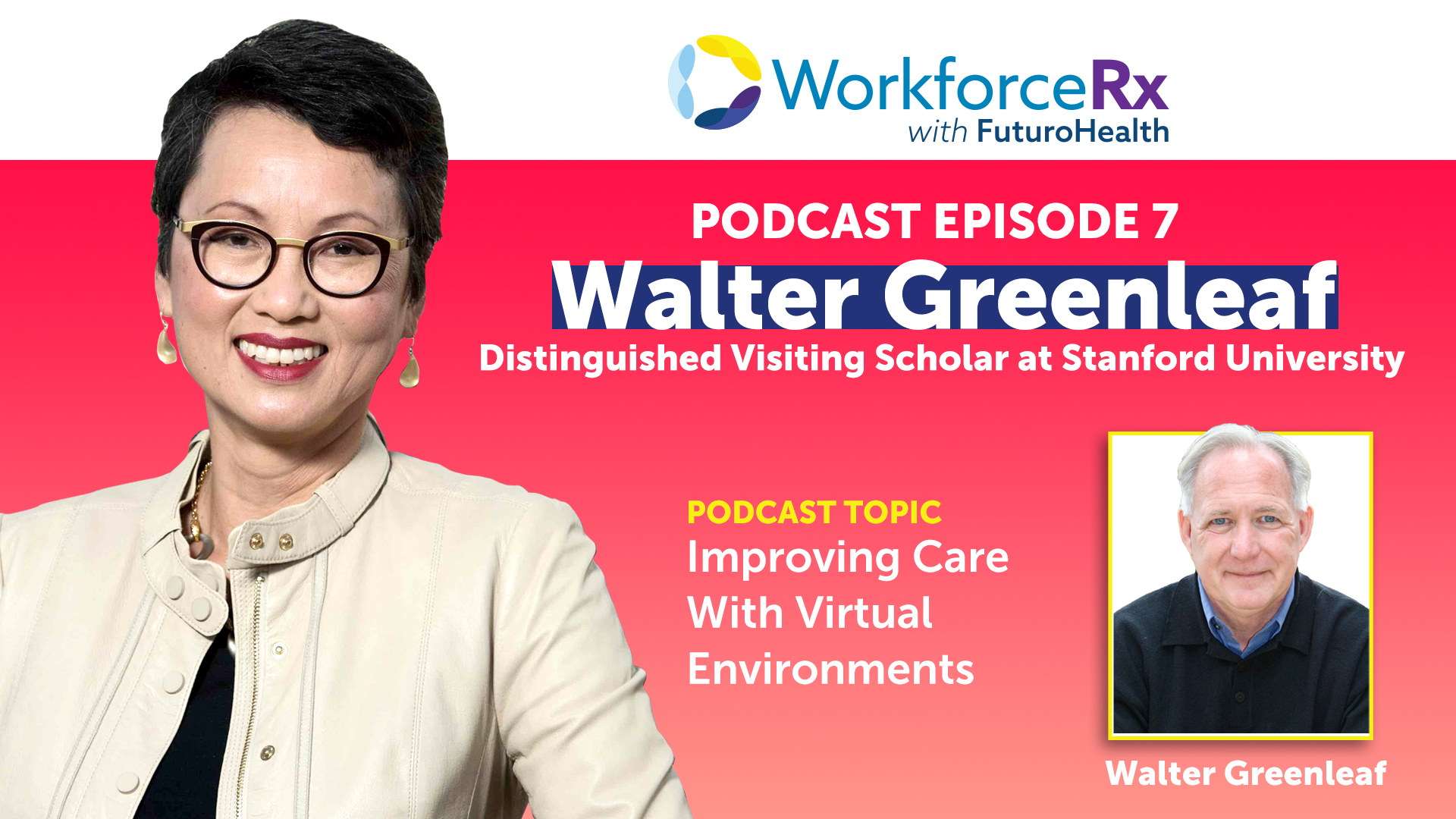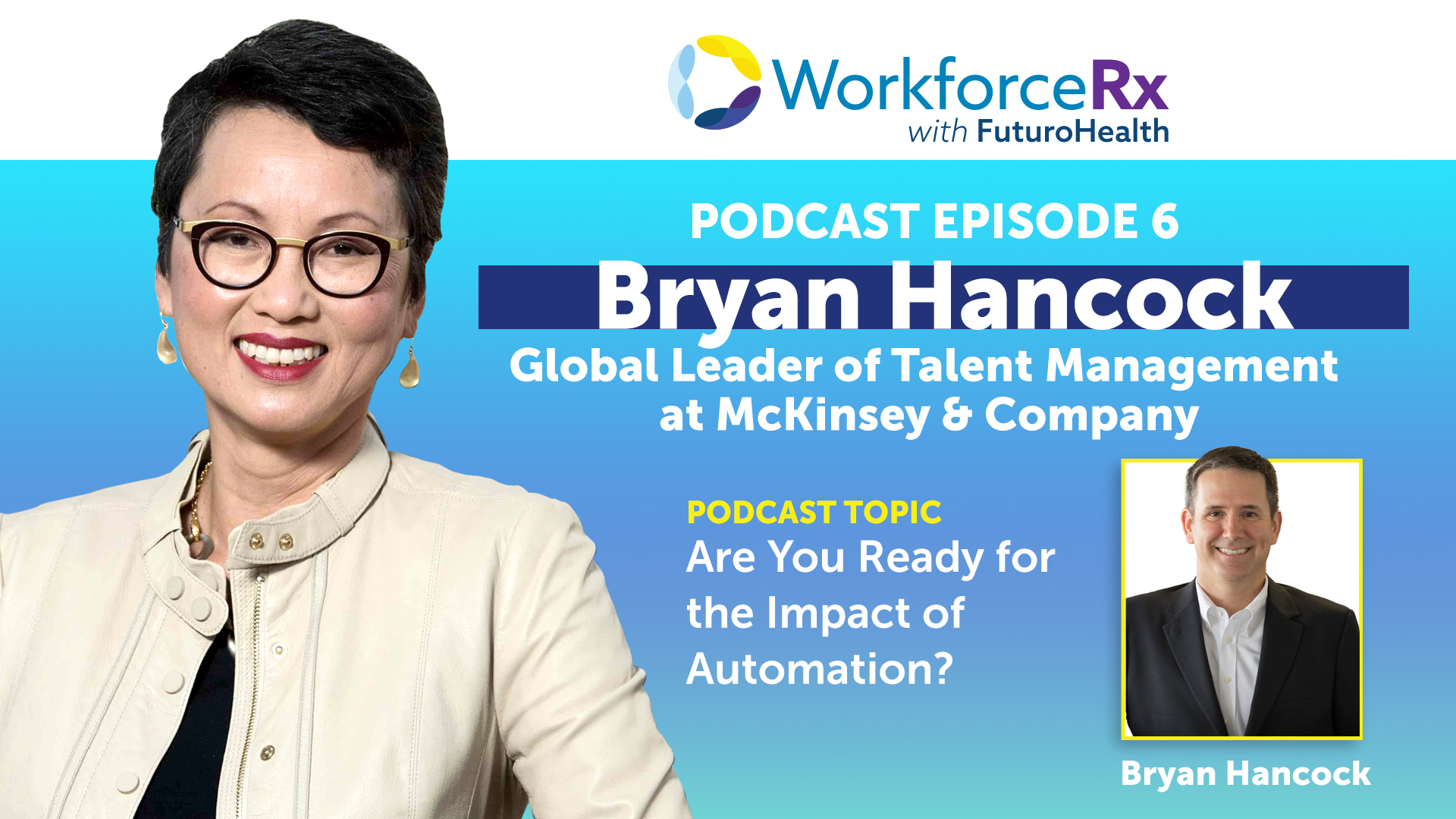“I think training is gonna be so different looking in the next few years than what we’re used to,” says Anson Green who brings a very seasoned eye to the workforce training landscape. After decades working in adult education, Green is now helping Tyson Foods train an incredibly diverse global workforce and, in the U.S. 60% are immigrants with very limited digital and language skills. As he explains to Futuro Health CEO Van Ton-Quinlivan, succeeding at this challenge starts with a belief in their ability to learn. “They’re very, very mobile in terms of their models of how to get things done, and they figure things out.” The big change he sees coming is due to AI-powered training programs that allow him to customize content by reading level, language and other factors with a few clicks instead of many hours of effort. Another key factor is that technology is getting easier to use. “We’ve got this really sweet spot where robots that five years ago would have taken an associate’s degree to be able to run, I could teach you how to run in an afternoon.” This is a great chance to learn about leading edge training programs at one of the world’s largest food companies and to find out about a hidden workforce training jewel in nearly every US community.
Continue readingJamie Merisotis, CEO of Lumina Foundation: The Robot Zombie Apocalypse is Not Coming
“We know from history that technology both creates and destroys jobs, and we don’t know what will happen this time around,” says Jamie Merisotis, author of the new book Human Work in the Age of Machines, “but I do think we should be more interested in the work that humans can do, because that is clearly something we can control by better preparing people for that human work.” That preparation needs to focus on nurturing “foundational human capabilities” that set us apart from machines – compassion, empathy, ethics and creativity to name a few. As he reveals in his book, Merisotis believes the end result can be a collaborative relationship between workers and technology. As President and CEO of Lumina Foundation, Merisotis has been a driving force in increasing access to post-secondary education not only for its economic benefits but because of the role education plays in cultivating the critical thinking essential to a functioning democratic society. Check out this revealing conversation with Futuro Health CEO Van Ton-Quinlivan about rethinking how we can restructure education, work and benefits to better meet the challenges and opportunities upon us.
Continue readingWalter Greenleaf, PhD, Distinguished Visiting Scholar at Stanford University: Improving Care with Virtual Environments
When he first started trying to score clinical research data in the mid-1980’s, Stanford University neuroscientist Walter Greenleaf was using a ruler, pen and paper. Now, thanks in part to his pioneering efforts, similar research can be conducted using virtual reality and augmented reality devices. These technologies are also being integrated throughout medicine, including treatment for various mental health issues, a special focus of his. For instance, patients can be exposed to anxieties or fears through carefully designed virtual environments, allowing them to build confidence while clinicians gauge their progress. Greenleaf, a Distinguished Visiting Scholar at Stanford University’s Virtual Human Interaction Lab, also sees broad potential for using virtual environments in workforce development and training, from handling difficult people and situations to bridging cultural gaps. Join Futuro Health’s CEO Van Ton-Quinlivan as she draws fascinating insights from Greenleaf gathered over decades of groundbreaking work in academia, technology development and medical product development, and find out what two skills he believes will open doors for healthcare workers in the decades to come.
Continue readingBryan Hancock, Global Leader of Talent Management at McKinsey & Company: Are You Ready for the Impact of Automation?
Bryan Hancock has spent the last two decades focused on the disconnect between the skilled workers employers need and what is available in the workforce. As Global Leader of McKinsey & Company’s Talent Management Practice, he’s able to tap into the firm’s deep research on workforce trends to advise private and public sector clients and what he’s seeing is an even larger skills gap developing as automation and digitization take over a significant portion of what he calls “the dull and dangerous” work. In fact, McKinsey estimates 30 to 40 percent of all workers in developed countries may need to move into new occupations or at least upgrade their skill sets significantly in the next decade. Despite that daunting challenge, he’s not discouraged because many large employers are making big investments in employee learning opportunities, and technologies like Virtual Reality are creating fun and effective options for training. He’s also encouraged by growth in the “workforce ecosystem” – independent foundations, companies, and other organizations who are innovating to close gaps in skills and opportunity. Check out this episode of Workforce Rx as Bryan and host Van Ton-Quinlivan explore all of those issues plus the growing importance of soft skills, the impact of the gig economy, and how employers can take a “talent first” approach.
Continue reading



